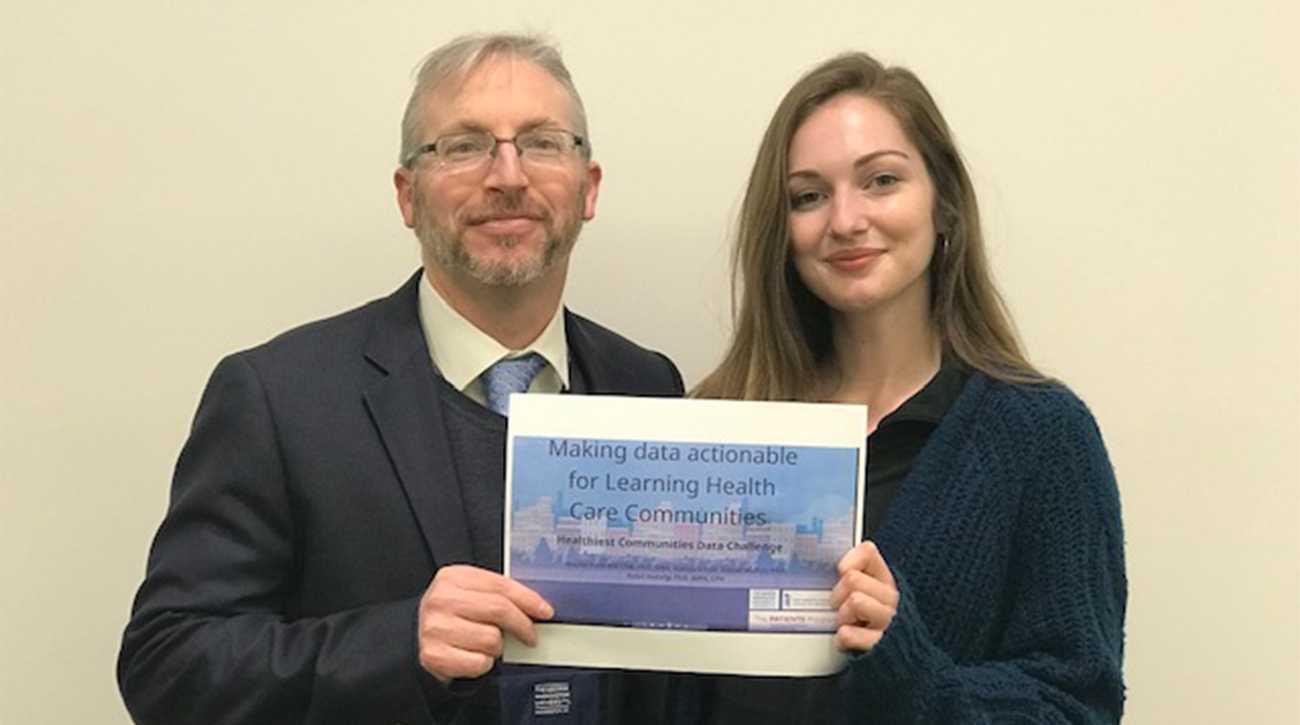An idea to combine existing data and documents to promote public health earned Wayne Psek, MBChB, PhD, MBA, an assistant professor at the George Washington University Milken Institute School of Public Health (Milken Institute SPH), Aleeza Vitale, a first-year GW Master of Health Administration (MHA) student and their collaborators from the University of Maryland School of Pharmacy a finalist award in the Healthiest Communities Data Challenge.
The team’s entry, “Making Data Actionable for Learning Health Systems,” was one of three entries selected and recognized collectively as finalists, rather than awarding first through third prizes, due to "the high caliber of the 3 finalists’ submissions.” The competition was supported by the Aetna Foundation, U.S. News & World Report and AcademyHealth, and the winners were announced at the 2019 AcademyHealth Health Datapalooza held in Washington, DC this year. It was the event’s 10th anniversary.
The objective of the Healthiest Communities Data Challenge is to leverage data available in the Aetna Foundation / U.S. News & World Report Healthiest Communities rankings and other data sources to impact public health. Psek realized that hospitals’ community health needs assessments, which are required every three years through the Patient Protection and Affordable Care Act, could marry well with the Healthiest Communities rankings data.
“The community health needs assessments, which hospitals make publicly available, identify health and equity issues in the local community as well as programs and projects that the hospitals are implementing to address those needs,” Psek explained. “Linking the Healthiest Communities data with community health needs assessments data has the potential to allow communities, policymakers and practitioners to more rapidly identify and prioritize social and health needs. It will provide a granular view of current activities and partnerships occurring in these communities.”
The idea also capitalizes on the Learning Health Care Community model that is actively being developed by the University of Maryland School of Pharmacy’s PATIENTS Program by their collaborators for the Healthiest Communities Data Challenge, Daniel Mullins, PhD and Nabil Natafgi PhD, MPH, CPH. Based on the learning healthcare system model released in 2007 by the Institute of Medicine (IOM)–now the National Academy of Medicine–the Learning Health Care Community model encompasses a partnership between community members and their health system which is inclusive and based on active communication, bi-directional learning, shared goals and trust to improve the health and well-being of communities. “Healthcare organizations develop meaningful partnerships with their communities and learn from community members about their health concerns, as well as how to improve their services and to provide more culturally sensitive care,” Psek said.
With the award, the team plans to build on their idea of making data more actionable to support Learning Health Care Communities and impact the health and wellbeing of communities.


